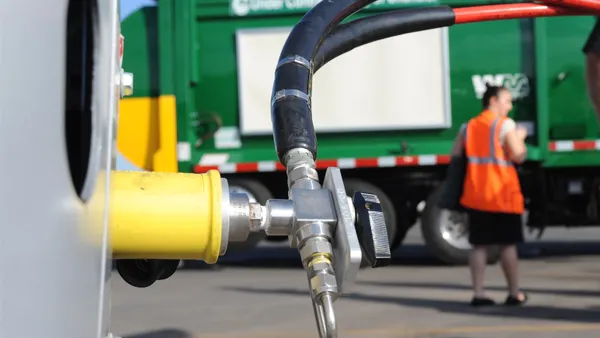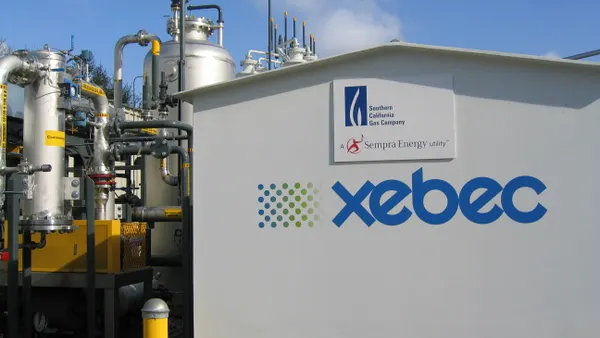Dive summary:
- Glendale, Arizona might be the first city in the U.S. to receive a next-generation gasification plant with stronger filters to catch extra emissions and would gasify 180,000 tons of garbage a year and produce 350 tons of gas per day.
- The technology is used mostly in Europe but the purposed plant would import trash into the city and turn it into electricity for many of the cities buildings.
- The $110 million plant would be built by Abengoa, a Spanish engineering company and will be owned and run by Chicago-based Vieste Energy.
From the article:
Combusting and gasifying city trash into energy is a process that has been around for decades. But modern plants now meet strict emissions standards and have many filters to catch any potential pollutants. Next-generation garbage-to-energy plants also use sophisticated sensors and computing to sort the trash into usable and unusable parts.
In Europe these types of new plants are popular. A New York Times article back in 2010 noted that there were 400 of these plants in Europe, with Denmark, Germany and the Netherlands leading the continent. But in the U.S. there are very few of these new and modern plants, and only a handful of older, aging plants. Back in 2010 there were no new waste to energy plants planned for the U.S., and there were only 87 of these plants that were all built more than 15 years ago. ...









